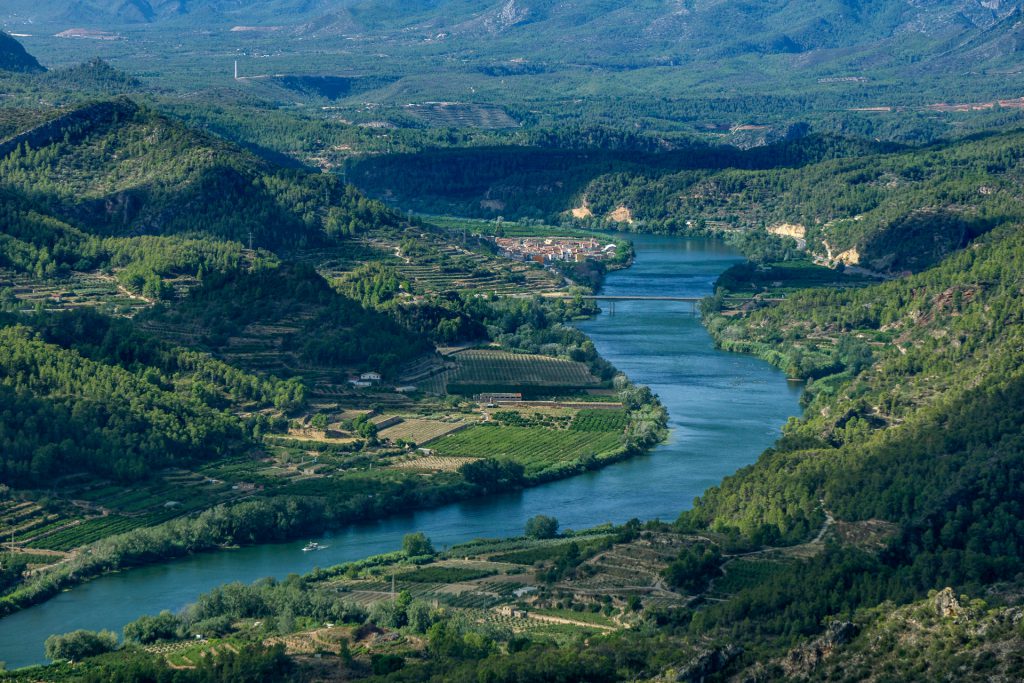04/12/2019

Josep Maria Piñol Alabart, Expert for the Chair for University and Knowledge Region
A new rurality: challenges and opportunities in Southern Catalonia

An evolving concept
The adjective rural has traditionally referred to life and activities linked to the countryside. It is used to refer to environments in which people live by making direct use of resources.
Rurality, however, is seen in an increasingly multifaceted way. For instance, we can identify several types of rural area depending on their relationship with cities. These include periurban areas, agricultural spaces (industrialized or not), intermediate cores with services, mountain areas used for second residences and others.
Apart from certain common characteristics that are all too frequently cited in relation to the problem of depopulation, each type of area presents particular problems and expectations.
A large part of Southern Catalonia is covered by one of the Local Action Groups that manage rural development programmes. This suggests that our territory has an inherently rural character. The regions of Conca de Barberà, Priorat, Ribera d’Ebre and Terra Alta are very rural; however the same can be said of other parts of Southern Catalonia, especially at higher altitudes.
The causes of a complex situation
The loss of human capital is a reality in southern rural areas. The core of the problem is not just depopulation but also aging. This results from an accumulation of historical factors (inadequate agricultural policies, low accessibility, resource constraints, lack of diversification plans) and new variables (effects of demographic structure, difficulty in accessing land and housing, lack of digital infrastructure, inadequate public policies).
In trying to address the lack of competitiveness, investment has often been carried out with little institutional coordination or efficiency, for example through the creation of industrial estates or the promotion of tourism, and has consistently failed to generate the desired effects.
There is also a more recent global factor that cuts across rural areas including our own. This is the polarisation of talent in larger urban areas, which affects the orientation of the economy and the knowledge society and, although it is an undeniable element of opportunity, surely generates effects that are still difficult to manage from more peripheral areas.
Therefore, the loss of population is a multifaceted problem that must be understood in depth and dealt with in a complex manner. Beyond talking strictly about demography and occupation, we must take a systemic approach that links local and global realities and takes into account, for example, the effects of climate change, the digital society, new mobilities, immigration and many other aspects.
Opportunities for a rural world with a future
In spite of the tendency to negativism that is detected when talking about the rural world, there are positive trends and opportunities that allow us to see a more hopeful horizon, and that can also be seen in the south of Catalonia.
For example, we can see the growing appreciation of rural areas as places of residence because of their proximity to natural spaces, opportunities for human contact, distinct identity, diversity of housing stock, quality educational services, and local production of high quality food, among other aspects.
This encourages existing residents to remain in rural areas and attracts new, creative residents who set up and promote new businesses across all sectors. This trend does not yet allow for a positive demographic balance, but it is a basis for progress and allows for a social transformation that is faster in some cases than in urban areas.
In a certain sense, we can say that in the West people tend to move from urban to rural areas, but the spectrum of those who opt for the latter is widening little by little.
Other trends that may be opportunities to promote low-density areas are the capacity for direct sales without intermediaries, specific dynamics of western re-industrialization that may affect rural areas, the general mechanisation of processes, the empowerment of women, the generation of added value and business internationalization, among others.
A necessary change of direction
Currently, the concept of innovation is necessary for territorial development. This extends to social innovation and governance, and to spaces that can be conducive to their deployment.
In this sense, public policies must overcome a traditional conceptual framework, which includes concepts that are losing meaning or are not the most appropriate (quality of life as an unspecific notion, work by departments, rural versus urban, talent retention, even a public-private partnership that must be taken as read).
Without forgetting the need to ensure basic services to all people, and starting from shared and dynamic strategies (a technical context that the European Union has favoured), we must speak increasingly of transversal projects because they facilitate competitive territories and capable of realizing attractive life projects. All of this is based on taking advantage of local resources and global trends, and making resettlement and the concentration of talent and creativity the natural result.
Undoubtedly, there are different good practices linked to rural areas, many of them in our region. Specifically areas such as agri-food, R+D+I, entrepreneurship and other forms of work, digital environment, tourism and heritage, housing, territorial marketing and others, must be elements of support to find new directions.
There are three key elements that must support this potential orientation, and in which public institutions can play a fundamental role: 1) the implementation of specific mechanisms for the diffusion of innovation, both economically and in other contexts; 2) the favouring of a territorial articulation in a network from nodes of different sizes that allow a balance between the rural and urban worlds, and 3) the generation of a positive image of the rural milieu (in this case recovering past values in our region). It is a question of updating the concepts of equal opportunities and territorial balance.
The historical vision has positioned rural areas as traditionally affected in the development process. However, recent evidence suggests that this is not necessarily the case. Southern Catalonia can be an increasingly obvious example if we work in the right direction, placing people, rather than policies, at the centre.
More news about: Opinion
